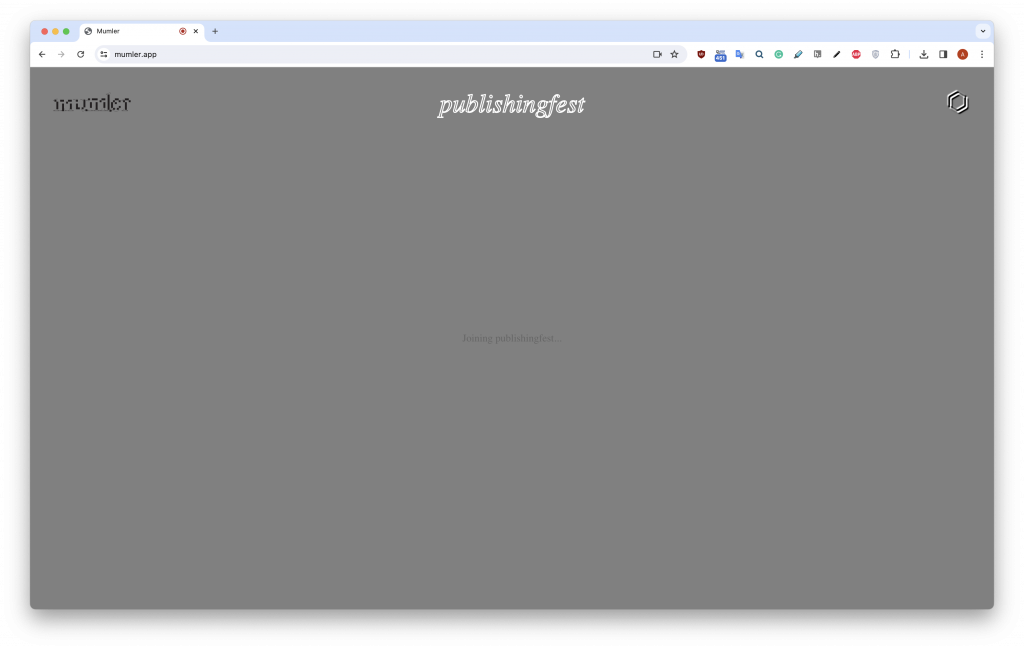On the occasion of the Expanded Publishing Fest – 20 Years of INC on the 12th of January 2024 amidst the triple book launch, micro book fair, tactical television and club night there was one more event that took place in the in-between spaces of physical and digital – the first public connection established through mumler.app. We’ve connected with the studio of UKRAiNATV in Kraków, INC researchers in Bologna and the VOID pop-up studio at OT301 in Amsterdam. From the initial chaos of delays and lost connections emerged a space of hybrid togetherness. In the glitchy afterimages of bodies moving before and on screen we all became part of the séance.
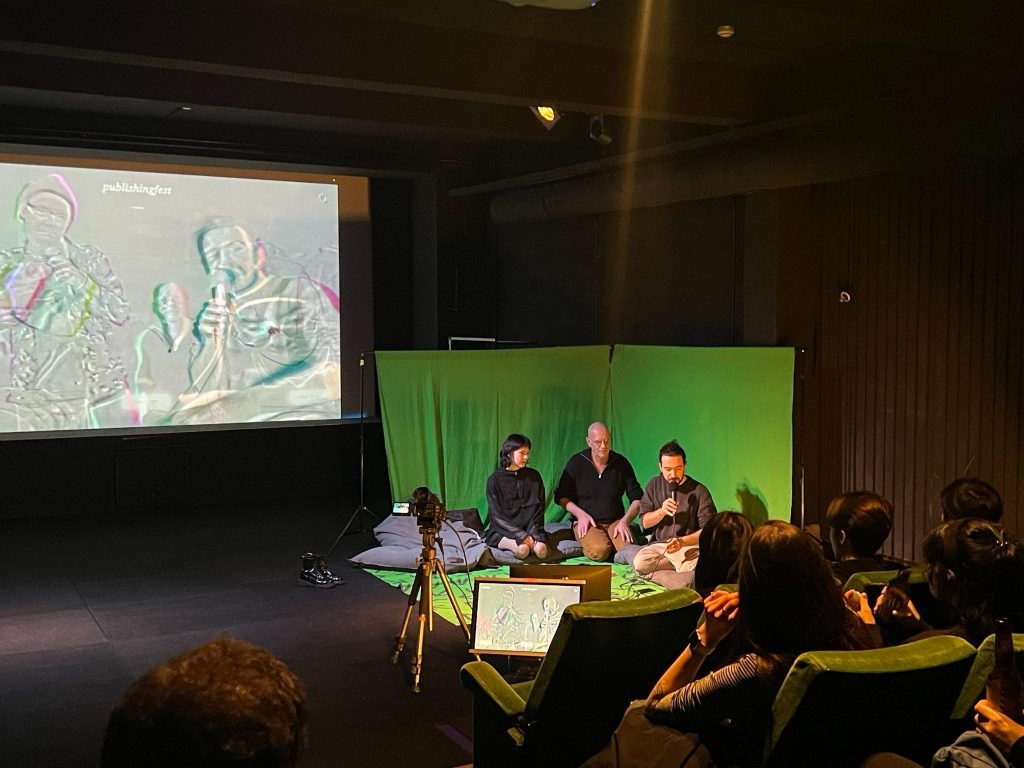
Expanded Publishing Fest – 20 Years of INC on the 12th of January 2024, from left to right Giulia, Geert and Tommaso, with online participation from Bologna and Kraków – photo by Sabine Niederer
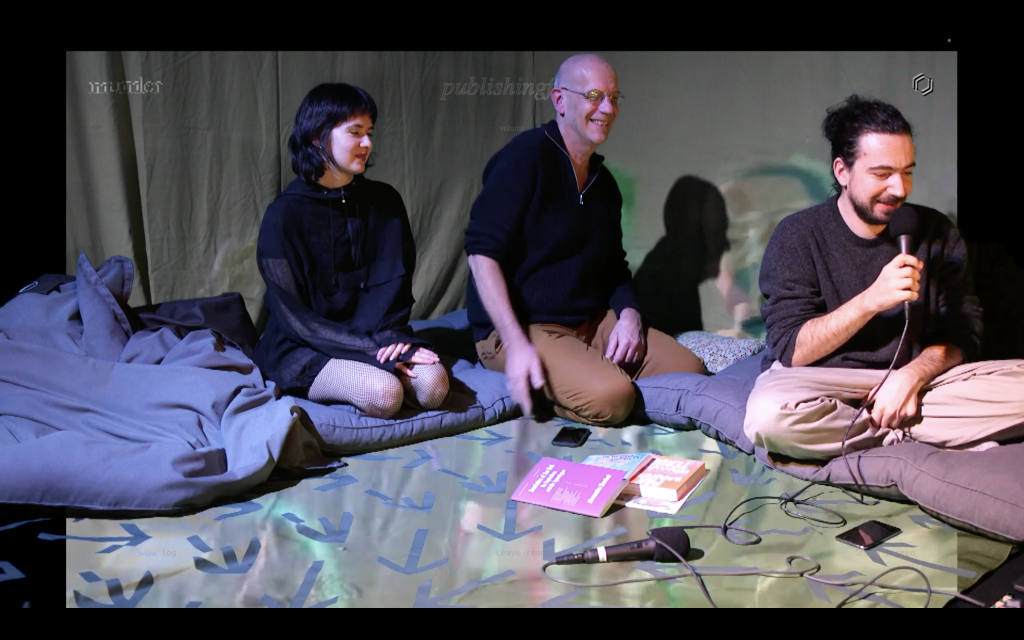
Expanded Publishing Fest – 20 Years of INC on the 12th of January 2024 screenshot from the VOID pop-up studio at OT301 on 12.01.2024
Mumler.app is an experimental video-call application, developed by artists/researchers Stefan Głowacki and Aga Antkowiak. The idea was born back in COVID when the two artists were locked in two different countries. In a world burdened by video vertigo and zoom fatigue, the need for an alternative becomes ever more palpable. Mumler.app is a speculation against the unfulfillable promise of seamless communication as a substitute for human interaction that seems to dominate the technology’s framing of the tools that became indispensable as mediators of social relations, specifically – the technology of video-conferencing that in the past years assumed particular significance.
The silent wish to abandon online communication tools and return to physical togetherness has not been satisfied. Mumler.app is a critique of the neoliberal isolation of the user as an individual subject boxed in a photorealistic live stream. Replacing the grid-based interface of video conferencing, the application synthesizes the images of its users in a way similar to the multiple exposures used by early analogue photographers claiming to capture ghosts invisible to the human eye. The processes of communication and coordination are transformed into an aesthetic experience. Ghostly afterimages and rainbow glitches – products of mumler. app’s digital architecture, which translates distance, time, and connection speed into visual effects – recasts the mundane experience of video chat into a hybrid togetherness.
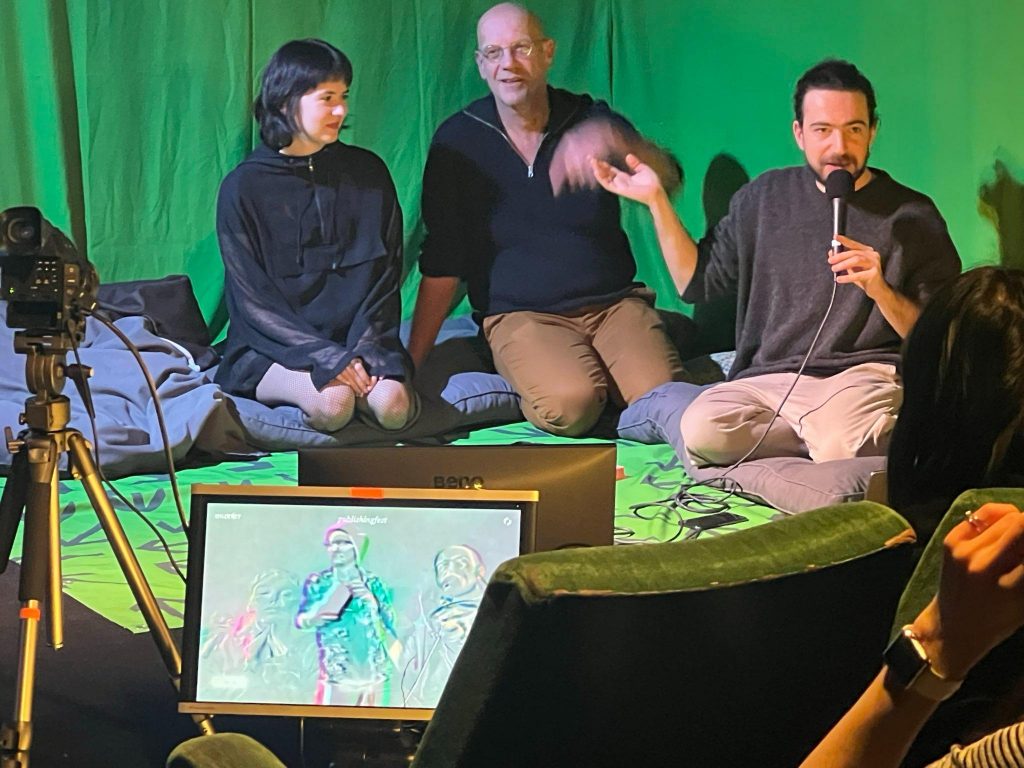
Expanded Publishing Fest – 20 Years of INC on the 12th of January 2024 photo by Sabine Niederer
The embrace of video-conferencing platforms like Zoom or Teams morphs into a form of „telematic” stranglehold, blurring the lines between work and leisure, public and private. Mumler.app breaks away from the logic of the office space and how bodies should be positioned in front of the webcam. Instead of sitting still, with your eyes at the height of the camera, you need to move around if you want to be seen.
With „zoomopticon,” there’s a looming sense of always being observed, not just by individuals but also by apps and algorithms (eg. face recognition). As users grapple with this surveillance, they’re often trapped, jailed within the digital grid, trying to find a balance between visibility and genuine presence. With mumler.app if you don’t move you can easily elude from being observed. The app takes a divergent path, allowing users to reclaim themselves from these platform-imposed constraints. The common compulsion of always being present, of consistently „showing up,” is put into question here.
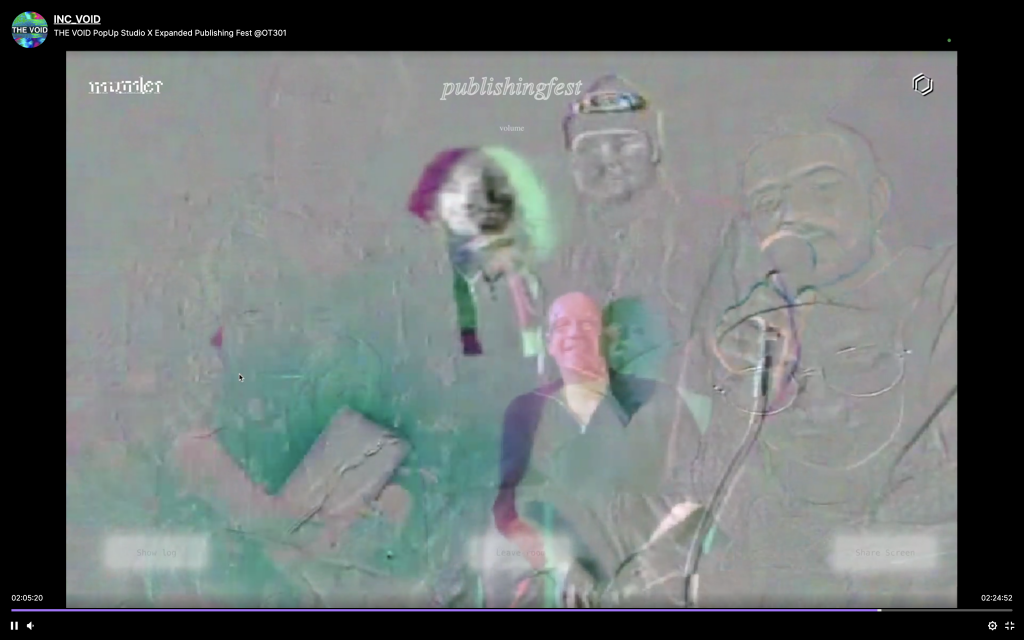
Screenshot from livestream of the VOID pop-up studio at OT301 on 12.01.2024
Thinking of the asymptotic dissolution of distance as the parameter of technological progress, mumler.app is based on an inverse gesture, making constitutive what’s normally considered an interruption and deficiency of online communication. For mumler.app the possible meaningfulness of an encounter rests not on the speed but the slowness of the channels that facilitate it. Prompted by the experiments of spiritualist photography (namely William H. Mumler), mumler.app imagines the co-presence of spectres, instead of senders’ and receivers’ exchanges, as a possible modality of technologically mediated encounters.
As the app lays an alternative set of conditions aimed at destabilising the hegemony of the efficiency-driven paradigm of online communication and utilizes aesthetics of glitch, it becomes a collective hallucination and “it is very ironic what we’re looking at is Polish high tech and the lowest of the low” as put by Geert Lovink during the VOID live stream from OT301 pop-up studio at INC Expanded Publishing Fest on 12th January 2024.
Welcome to the séance!
Project supported by Room&Board Julia Pelta Feldman


